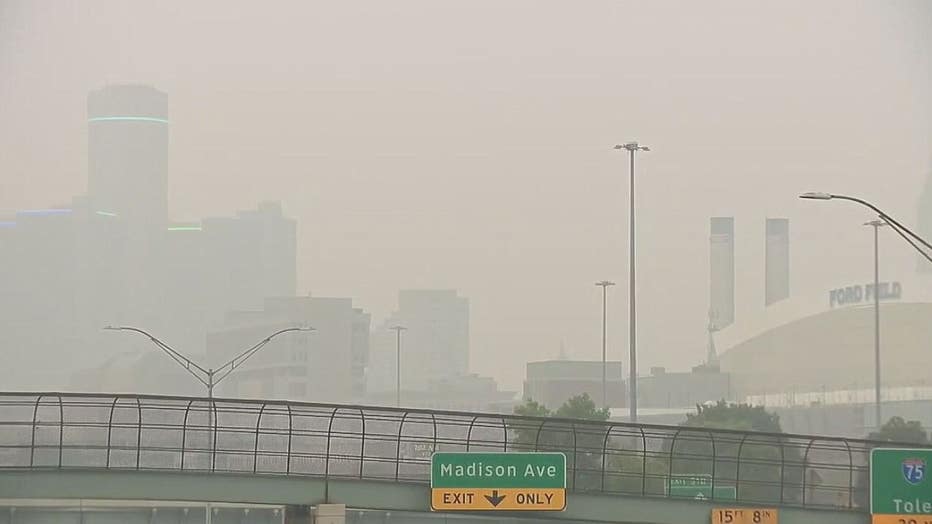Air quality from Canadian wildfires especially impacting those with health issues

Air quality impact from Canadian wildfires impacting those with breathing conditions
Countless people across Metro Detroit suffering in some way medically due to the smog caused by the Canadian wildfires - giving us what’s been called, the worst air quality in the world.
DETROIT (FOX 2) - The current Air Quality Alert caused by wildfire smoke from Canada, is causing health problems for many - especially those with underlying conditions.
"With the air quality headaches, and that’s probably the biggest issue I’ve had," said Christina Walker. "Just trying a good deep breath of air. But the headache has been the biggest piece."
So Christina Walker’s flight out of town will hopefully mean some better air quality once she lands. She’s one of countless people across Metro Detroit suffering in some way medically due to the smog caused by the Canadian wildfires - giving us what’s been called, the worst air quality in the world.
Others are looking after more vulnerable family members.
"My grandma is living with us and she’s wearing a mask when she’s coming in and out of the house," said Audrey Parker. "So that’s one precaution we are taking."
For many, getting away from the smoke clouds is not so easy. In fact more and more people are being forced to hit up their local emergency room or doctor's office, to address serious smog-related symptoms, according to medical experts.

The latest on Canadian smoke impact on our air quality
Rich Luterman has the update on the Air Quality Alert which has been extended.
"Actually in the last couple days it does seem like there are more people who have more wheezing, coughing and shortness of breath - people with underlying lung disease," said Dr. Lawrence MacDonald. "That’s who I see and they get worse."
MacDonald is chief of Pulmonology at DMC Huron Valley - Sinai Hospital in Commerce Township. He says vulnerable people need to take action right away.
More coverage: Michigan Air Quality Alert extended through Friday as wildfire smoke causes haze over area
"If you know you have asthma, if you know you have COPD, have a primary care doctor to make a plan," MacDonald said. "If you're not on inhalers now, you may need them. You should have them available. There should be a plan for times like this.
"If you have inhalers and you are on them, you may need additional inhalers - you may need a steroid inhaler. If you’re already on all that, you may need steroids, you may need pills or injections or steroids that, hopefully you can get at home, but sometimes you may need to go to the ER for."
Urgent care locations are also an option for those suffering.


